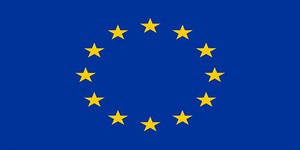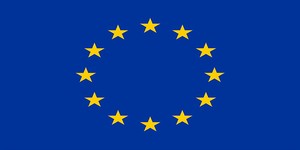EU rules linking, embedding is not infringement
February 14, 2014 | 10:57
Companies: #eu #european-union

The Court of Justice of the European Union has ruled that publishing links to or embedding existing publicly-accessible content is not enough to be found guilty of copyright infringement, in a move which is likely to allow EU-based search businesses to breathe easier.
Referred to the Court of Justice by the Swedish Court of Appeal, the case referred to specifically to claims that a content aggregation service, Retriever Sverige AB, had breached copyright by providing its subscribers with links to articles written for the Göteborgs-Posten newspaper without providing compensation to the authors. Retriever claimed that providing links to content freely available elsewhere - and even embedding said content directly on its own site - did not constitute copyright infringement; the copyright holders, meanwhile, claimed that the company's actions constituted unauthorised communication of a copyright work to the public, and that payments were due.
The case was dismissed in 2010, but the copyright holders appealed against the ruling. Now, four years later, have received a formal and final decision: linking is not copyright infringement.
'It must be observed that making available the works concerned by means of a clickable link, such as that in the main proceedings, does not lead to the works in question being communicated to a new public. The public targeted by the initial communication consisted of all potential visitors to the site concerned, since, given that access to the works on that site was not subject to any restrictive measures, all internet users could therefore have free access to them,' the ruling explains. 'Therefore, since there is no new public, the authorisation of the copyright holders is not required.'
While the ruling is generally in favour of free and open linking and embedding of internet content, the judiciary did warn of one instance where such re-communication would constitute copyright infringement: 'Where a clickable link makes it possible for users of the site on which that link appears to circumvent restrictions [such as paywalls or subscription requirements] put in place by the site on which the protected work appears in order to restrict public access to that work to the latter site’s subscribers only, and the link accordingly constitutes an intervention without which those users would not be able to access the works transmitted, all those users must be deemed to be a new public,' the ruling warns, which would indeed require authorisation - and, likely, a payable licence - from the original copyright holder.
The full ruling has been published on the Court's official site.
Referred to the Court of Justice by the Swedish Court of Appeal, the case referred to specifically to claims that a content aggregation service, Retriever Sverige AB, had breached copyright by providing its subscribers with links to articles written for the Göteborgs-Posten newspaper without providing compensation to the authors. Retriever claimed that providing links to content freely available elsewhere - and even embedding said content directly on its own site - did not constitute copyright infringement; the copyright holders, meanwhile, claimed that the company's actions constituted unauthorised communication of a copyright work to the public, and that payments were due.
The case was dismissed in 2010, but the copyright holders appealed against the ruling. Now, four years later, have received a formal and final decision: linking is not copyright infringement.
'It must be observed that making available the works concerned by means of a clickable link, such as that in the main proceedings, does not lead to the works in question being communicated to a new public. The public targeted by the initial communication consisted of all potential visitors to the site concerned, since, given that access to the works on that site was not subject to any restrictive measures, all internet users could therefore have free access to them,' the ruling explains. 'Therefore, since there is no new public, the authorisation of the copyright holders is not required.'
While the ruling is generally in favour of free and open linking and embedding of internet content, the judiciary did warn of one instance where such re-communication would constitute copyright infringement: 'Where a clickable link makes it possible for users of the site on which that link appears to circumvent restrictions [such as paywalls or subscription requirements] put in place by the site on which the protected work appears in order to restrict public access to that work to the latter site’s subscribers only, and the link accordingly constitutes an intervention without which those users would not be able to access the works transmitted, all those users must be deemed to be a new public,' the ruling warns, which would indeed require authorisation - and, likely, a payable licence - from the original copyright holder.
The full ruling has been published on the Court's official site.

MSI MPG Velox 100R Chassis Review
October 14 2021 | 15:04








Want to comment? Please log in.